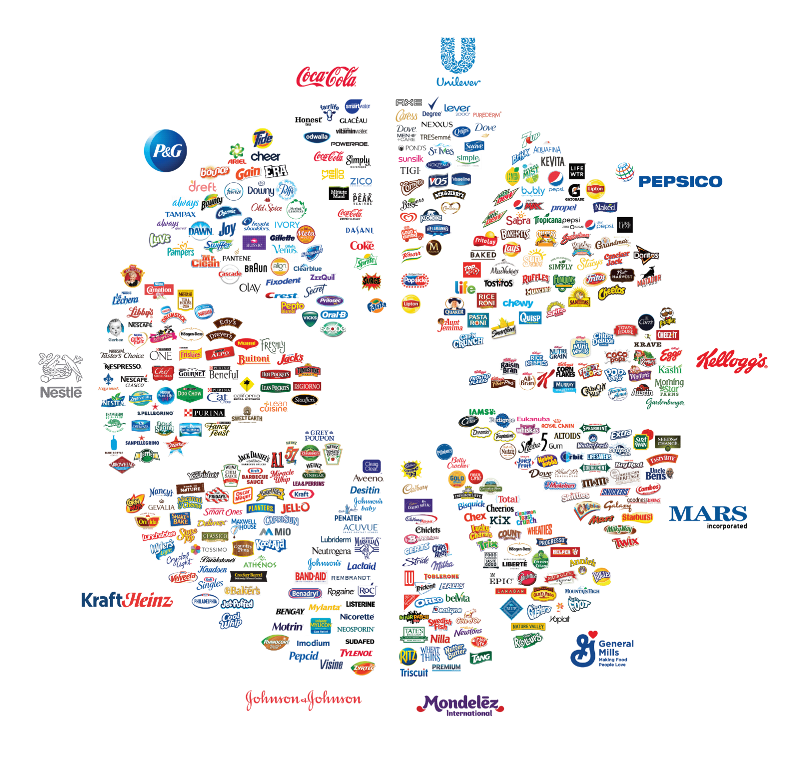Oligopolies – More Than a Roll of the Dice
When discussing oligopolies, it is generally in the context of the Gilded Age. Many consider them to have died over a century ago with the passing of the Sherman Antitrust Act – which prohibits the formation of monopolies and “unfair methods of competition.” While this may at first seem like the perfect solution to the issue at hand, it simply isn’t doing enough.
If you are under the impression that the world of oligopolies and robber barons is one of the past, think again. By hiding behind several facades, corporations are able to grow oligopolies right under the noses of consumers, greatly diminishing the opportunity for the expansion of an industry. The problem with this is that by the time our generation – Gen Z – gets old enough to really integrate into the adult world, the term “small business” will be ancient history if we don’t do something to fix this growing problem.
While we may not see them as such, we are surrounded by several trusts – including Nestle, Johnson & Johnson, Unilever, Coca-Cola, and MARS. These companies own a wide variety of brands ranging from foodstuffs, healthcare goods, toiletries, and everything in between. With this in mind, a question is raised of just how much freedom of choice we really have.
One of the more well-known oligopolies is Google, who holds 83% of the global search engine market. When technological superpowers like Microsoft (who owns Bing) struggle to compete, this is a problem. And in this day and age, it seems nearly impossible to bypass Google, who monitors every move we make (literally). Their tracking systems are able to keep tabs on your location, purchases, travel dates, and even audio recordings of conversations had in the presence of your phone and smart speaker. This kind of power raises concerns for many who question the need for this information. Nevertheless, we continue to enable the corporation to do so by default.
An issue that often arises with the development of oligopolies is the decline in the quality of their product. This can best be seen with Apple, who was able to assume control over several other tech companies like Beats (which they purchased for $3 billion) and Shazam (for $400 million), steadily maximizing the extent of their grasp. Back in 2016, the company decided to eliminate the headphone jack from their phones, practically forcing consumers to spend over $200 for a pair of Airpods on top of the thousands already spent on the device itself. The following year Apple was called out for programming their devices to deteriorate over time in order to ensure the purchase of their newest products.
Just this year, Euroconsumers, a European antitrust advocacy group, was able to settle a lawsuit against Apple for this exact reason, earning $217 million in compensation for the damages. Despite all of this, the company continues to garner the support of millions of Americans and firmly hold its position at the top of the smartphone industry.
Airlines consist of some of the most extensive oligopolies in the nation. Recent mergers have left four airlines to dominate 70% of the market. Of the 100 largest airports in the U.S., 94 are controlled by one or two of the major airlines, who engross the sales of that location. With this kind of control, they are able to raise prices as they see fit, which is generally not in the best interest of the customer. Airfare has increased by 5% in the past 10 years – not including extra travel and baggage fees – despite the market not having shown a dramatic increase.
We all remember the moment when mass media and entertainment giant, Disney, decided to swallow 21st Century Fox. While it may have seemed like a great idea at the time, when we reflect on just how much they assumed through the deal, many red flags are raised. Currently, Disney owns the majority – if not all the shares – to Pixar, Star Wars, Marvel (including the Spiderverse, X-Men, and Fantastic Four), National Geographic, ESPN, Hulu, and several other equally substantial brands. Now with the launch of Disney+, they are able to further expand their grasp of the entertainment industry. While their films may be beloved by many, it’s time to break up the corporation that single-handedly dominated 40% of all box office revenue in 2019, and make way for more independent pictures.
Our “free” economy is oversaturated with corporations and trusts, leaving little room for small businesses and industrial expansion. The amount of oligopolies in the nation are countless and, as businesses continue to merge, the control they exercise is on the rise. While perhaps at one point seeming a thing of the past, the diminishing market proves that a future of monopolistic competition is not too far fetched.
—-
If there are issues with this article, report it here.

